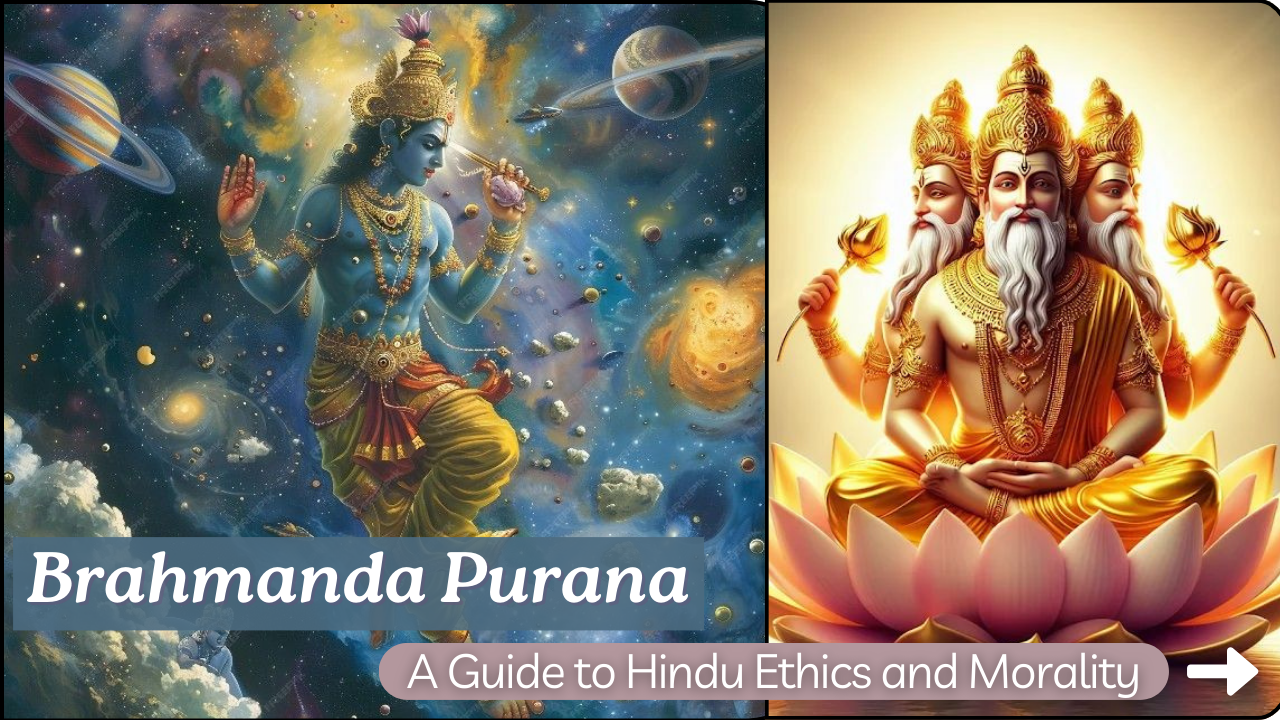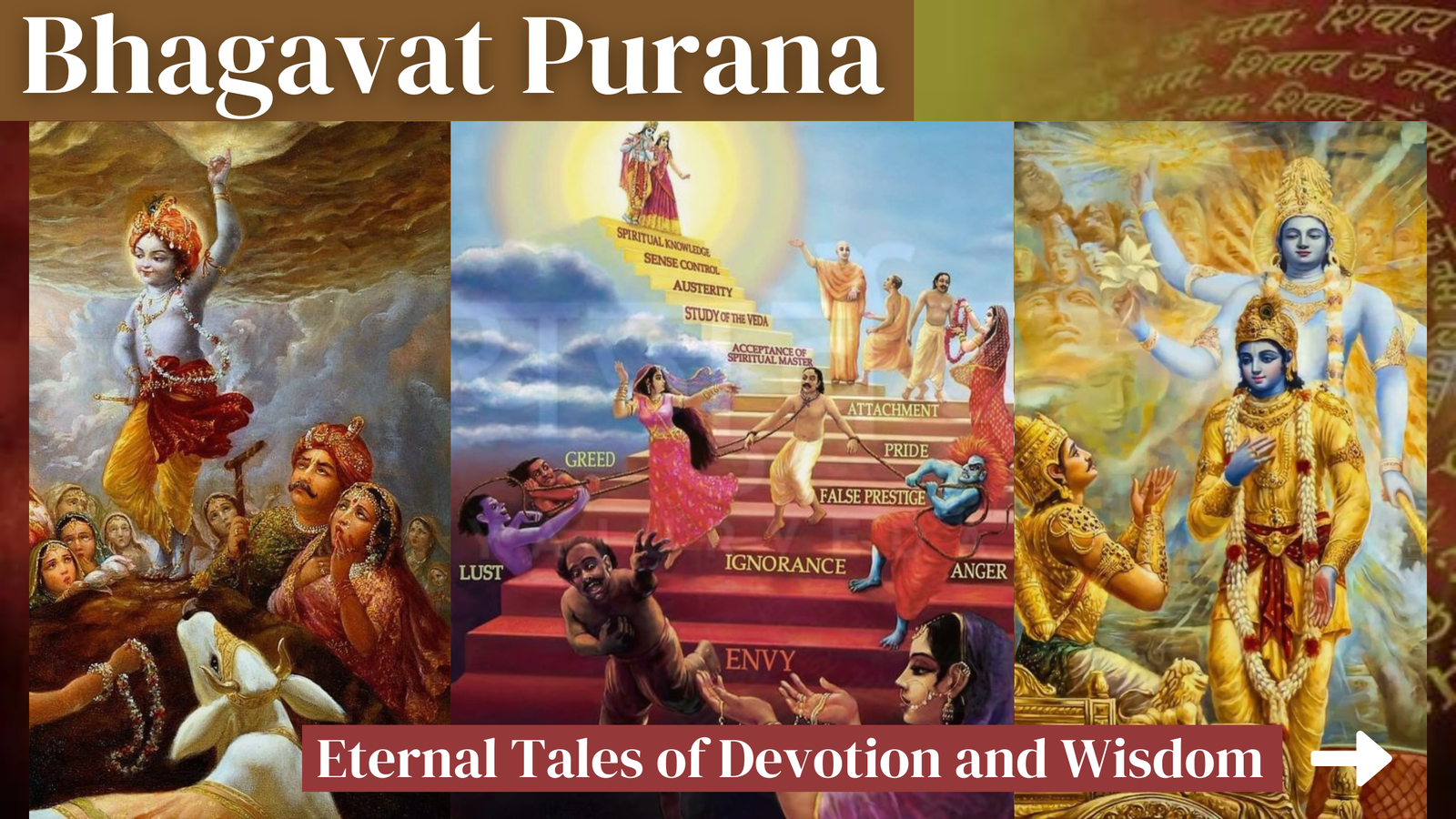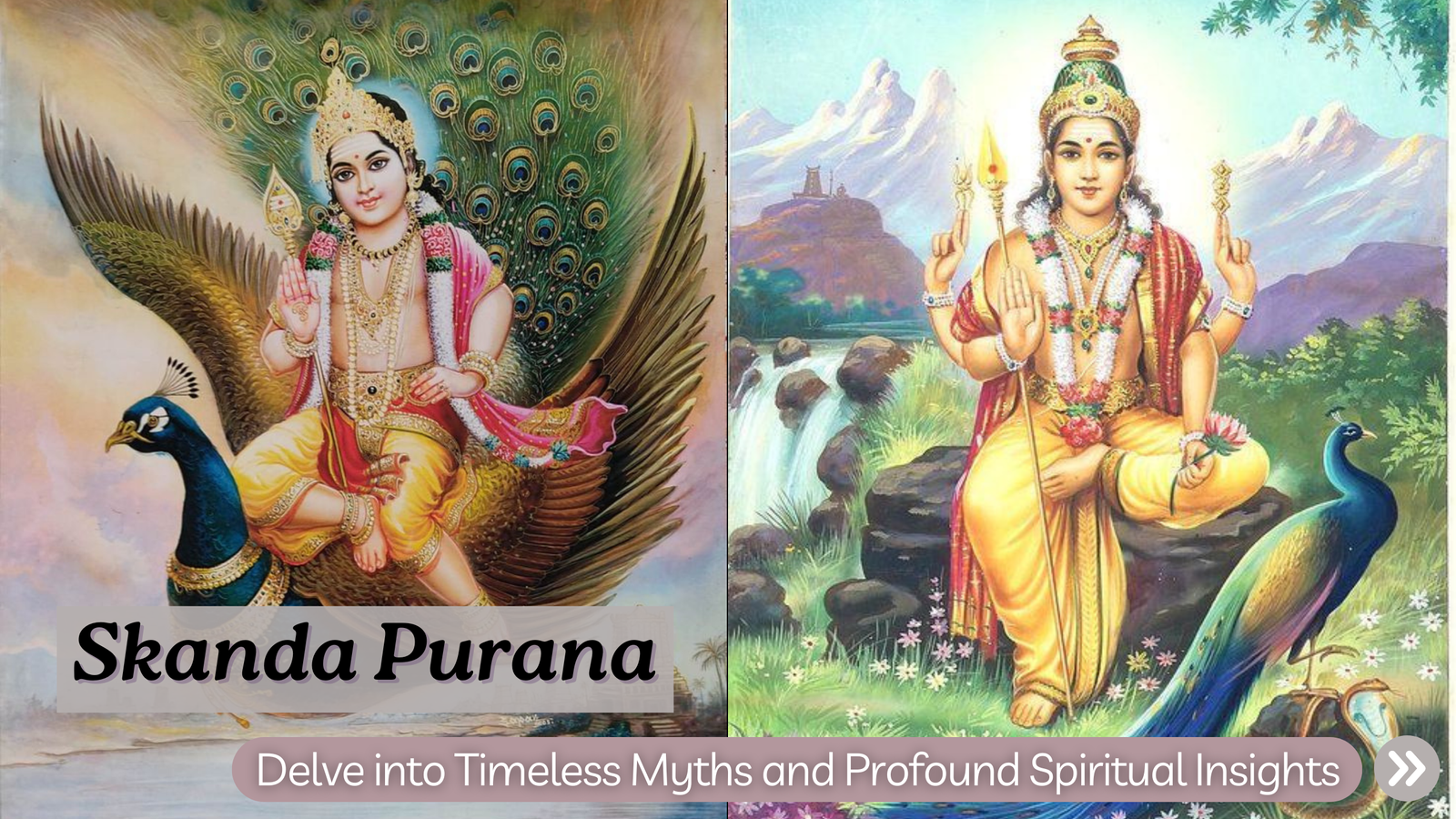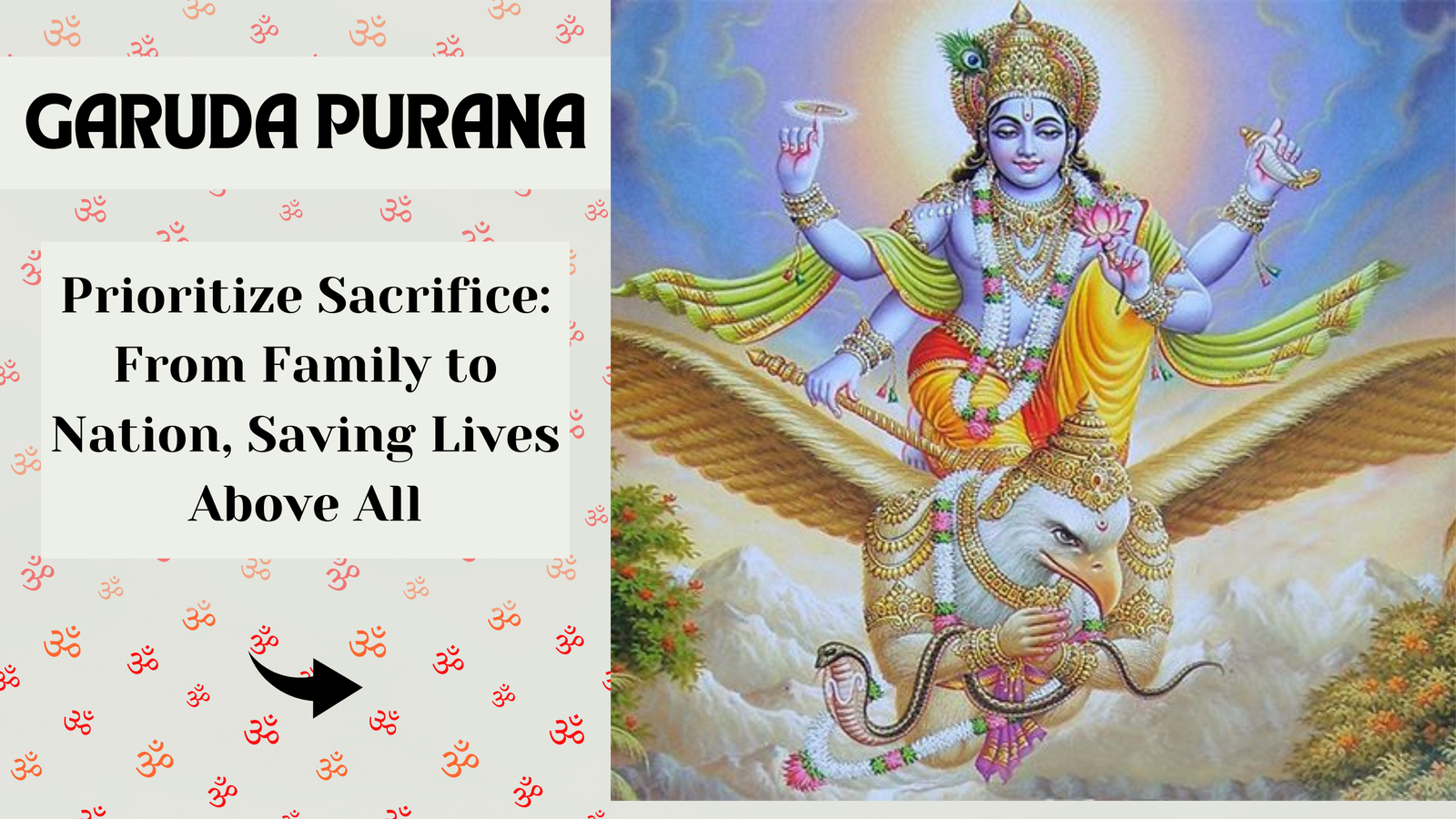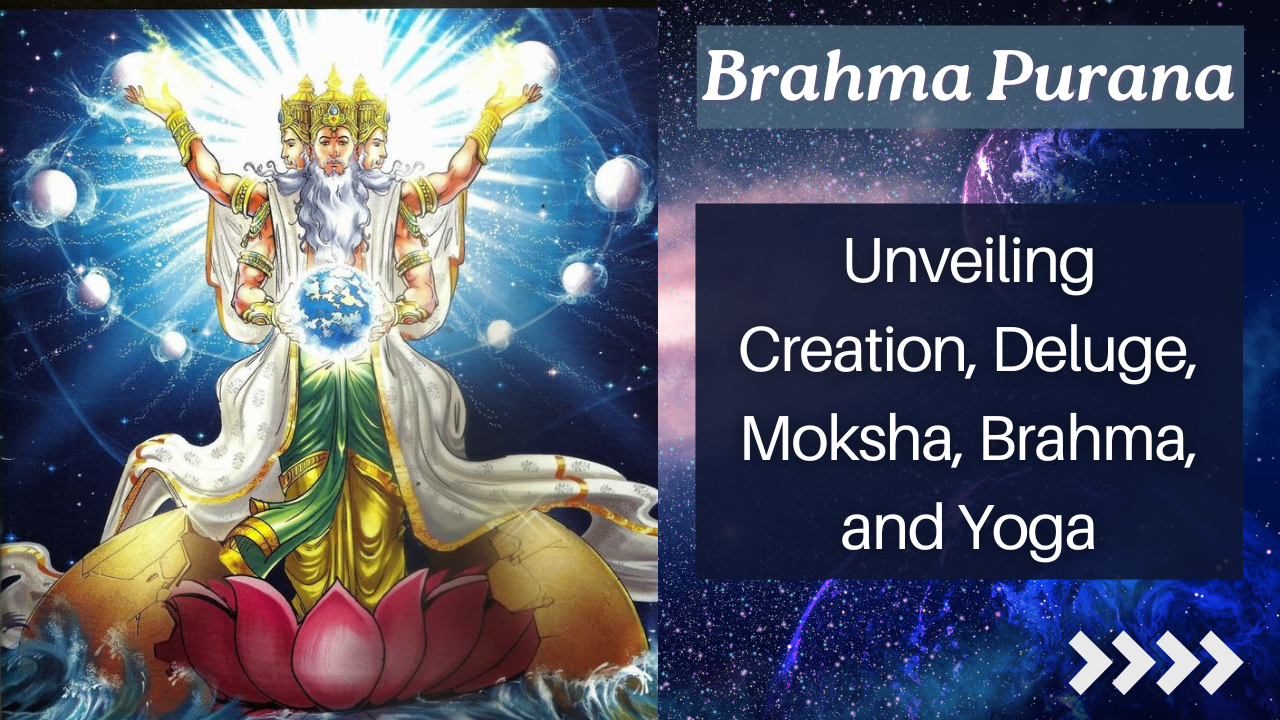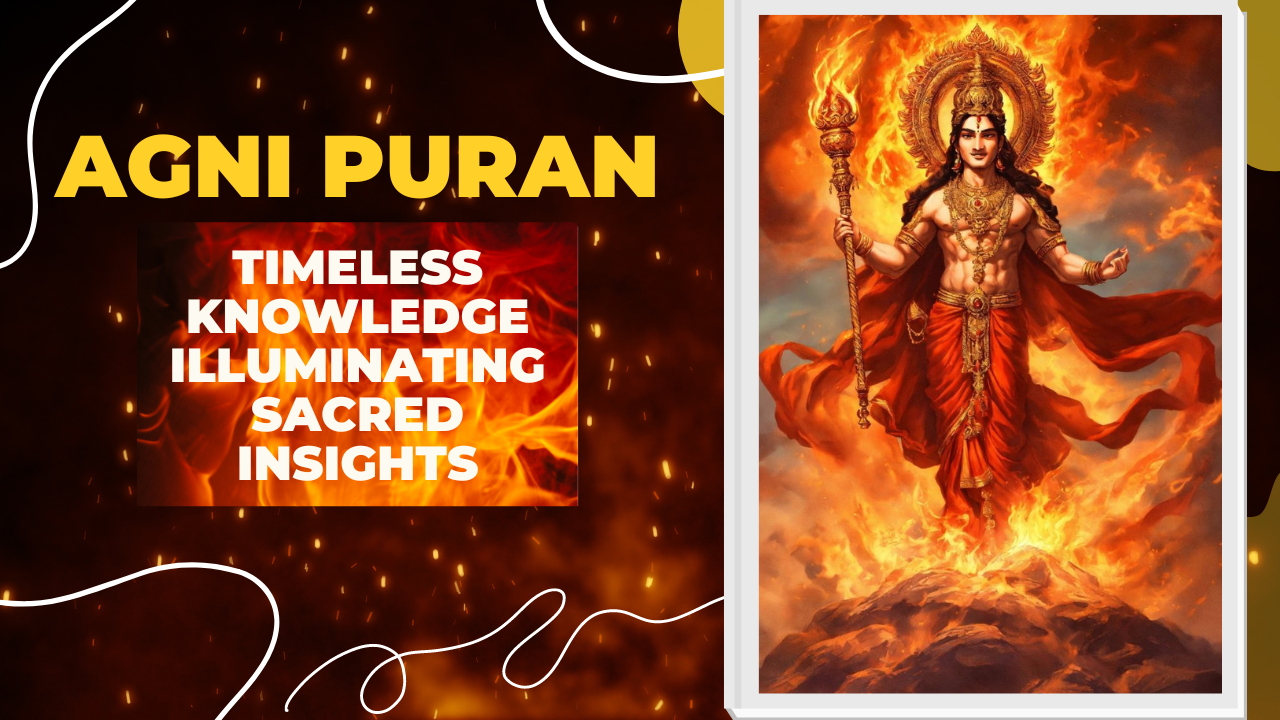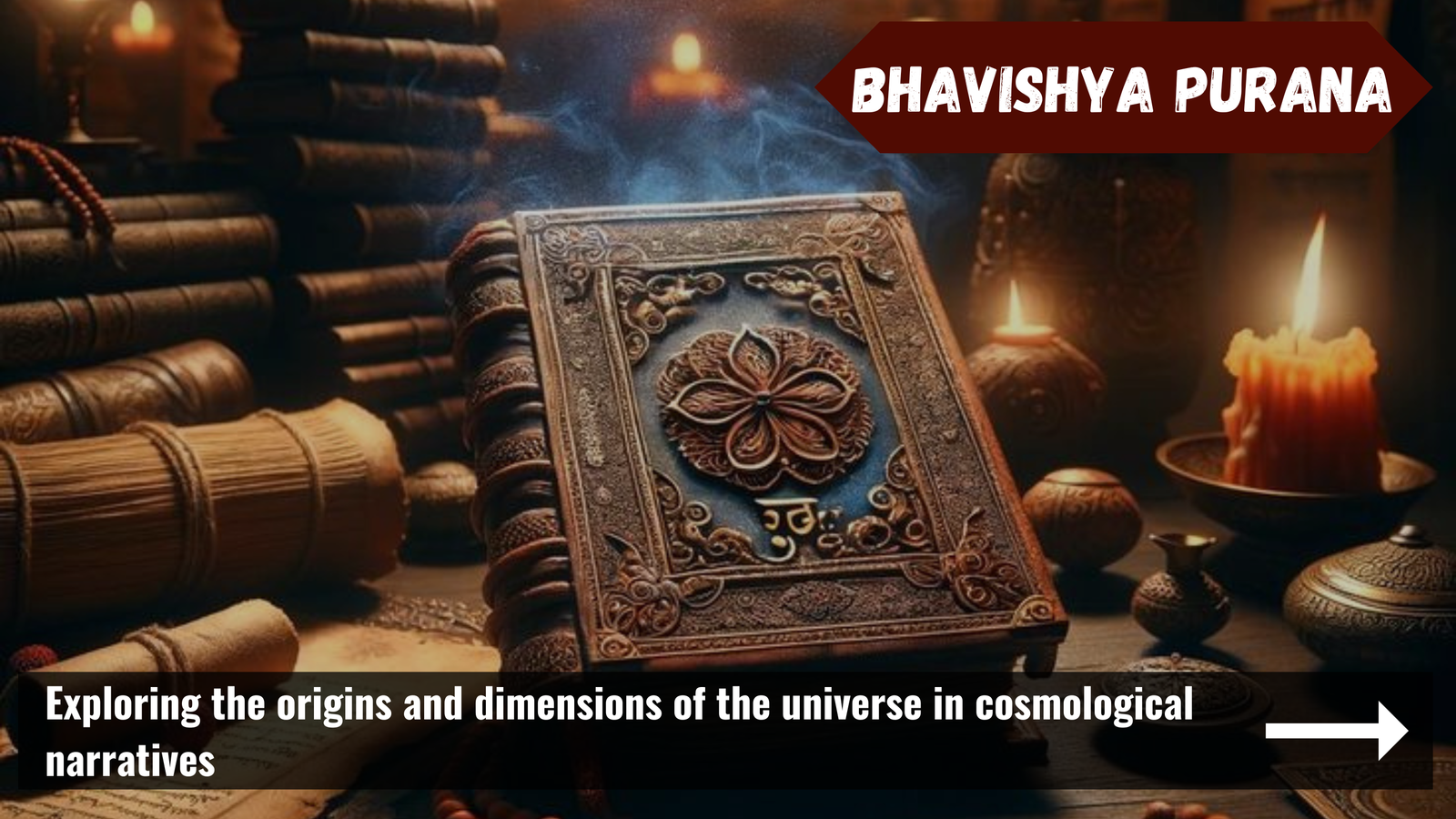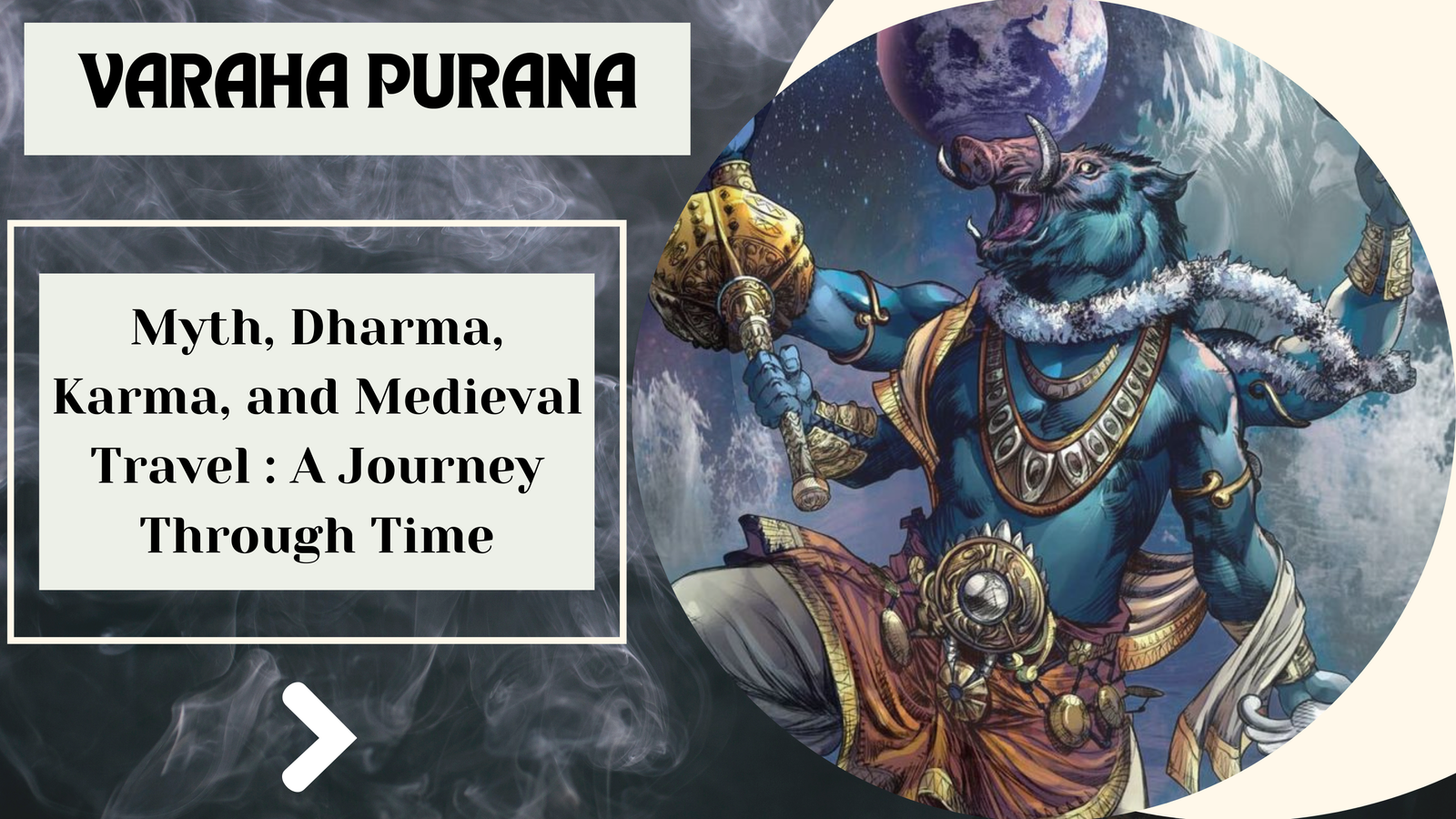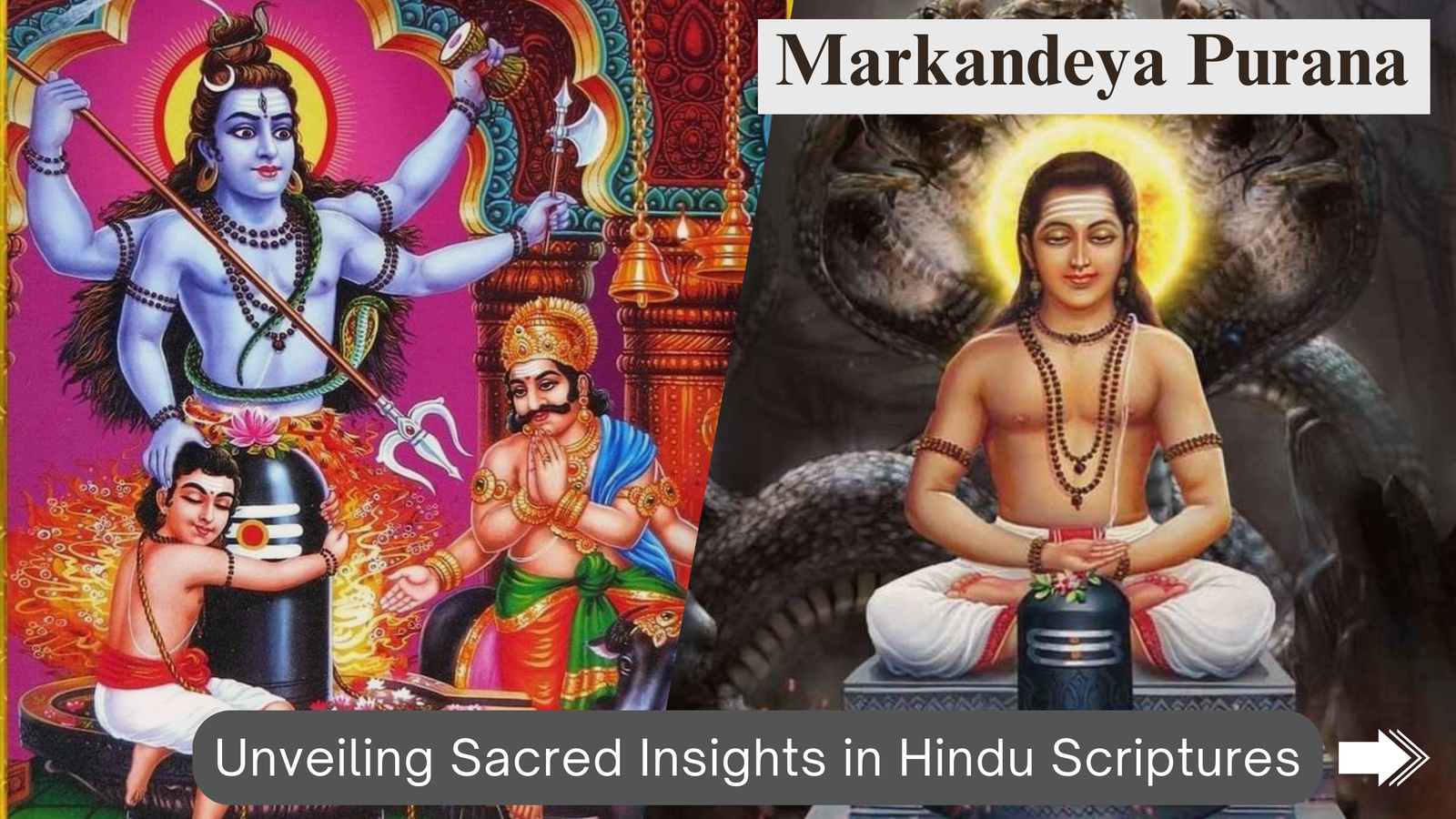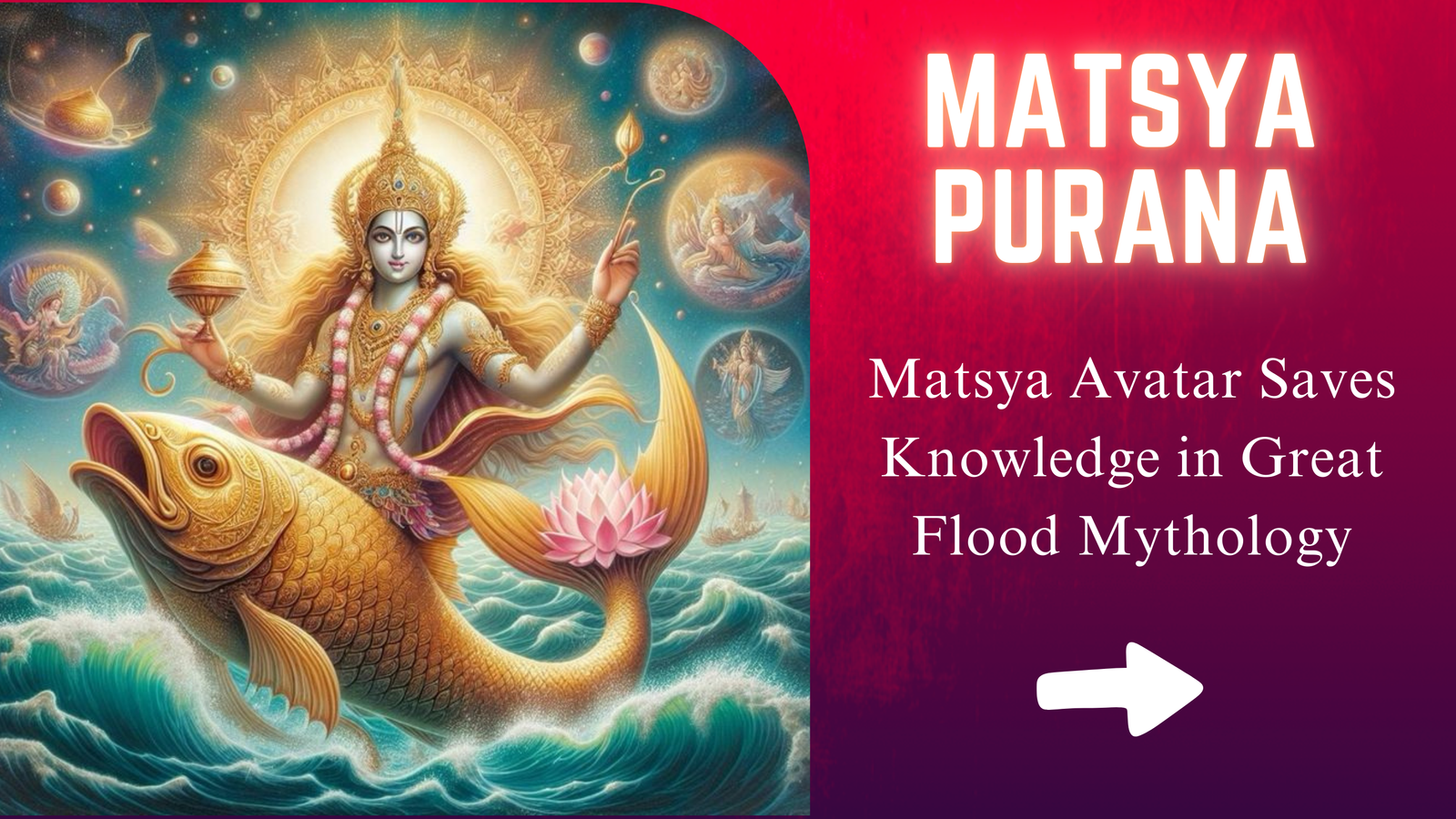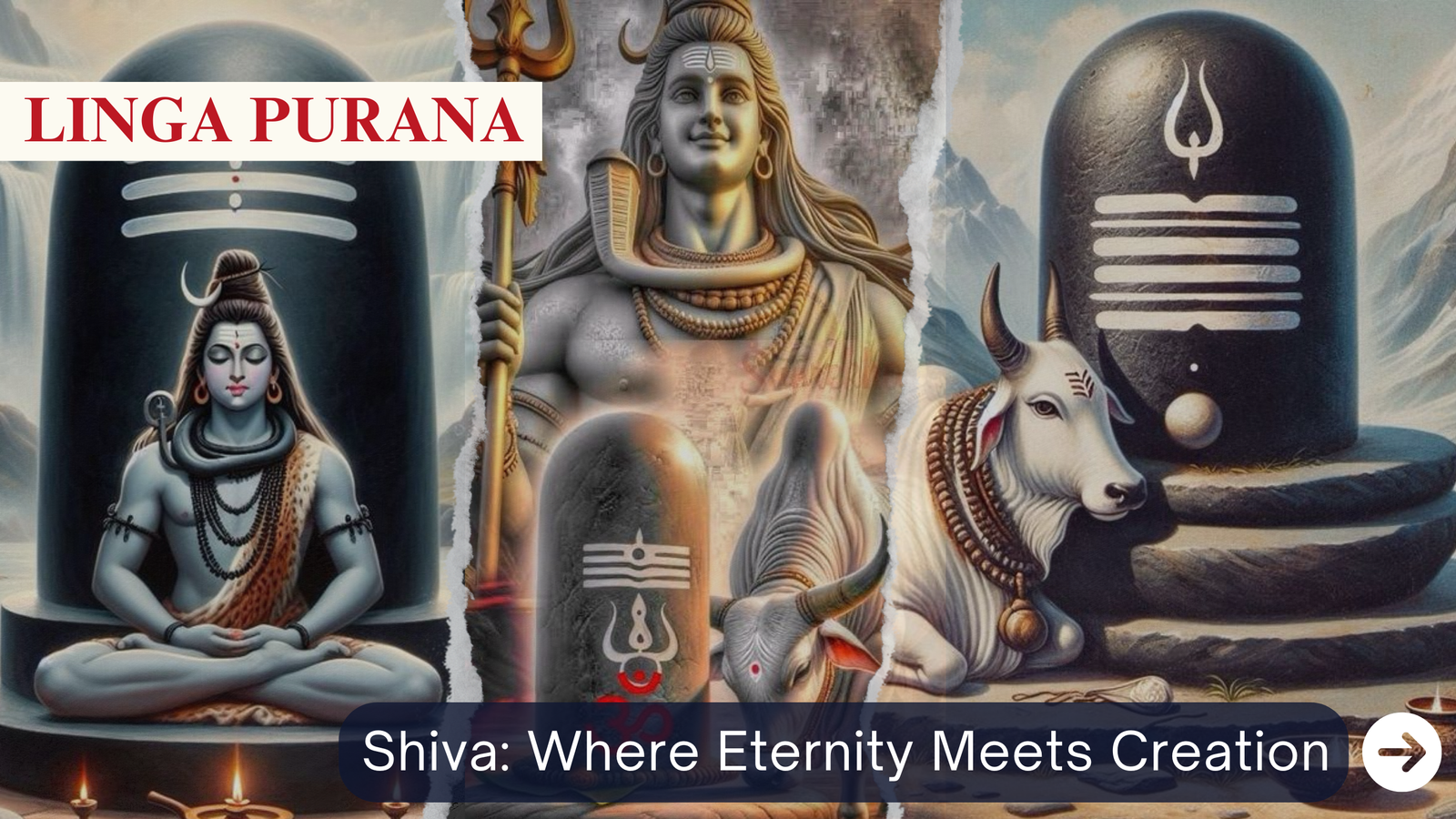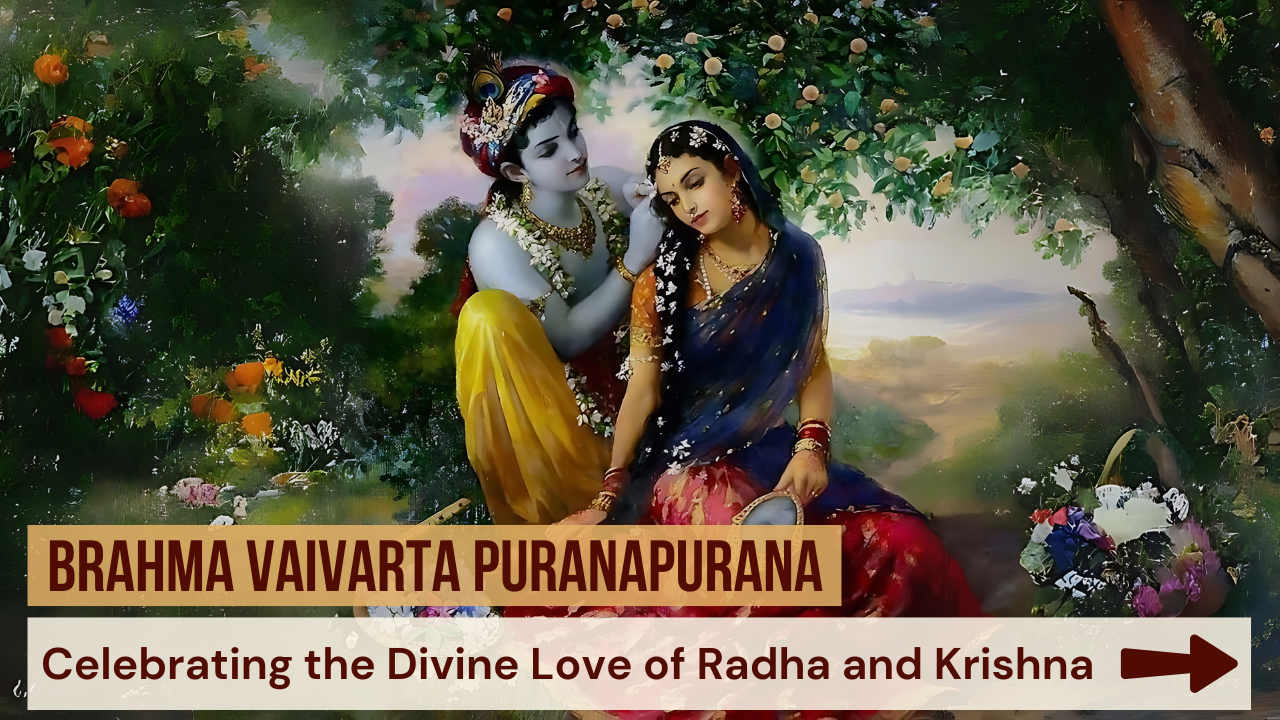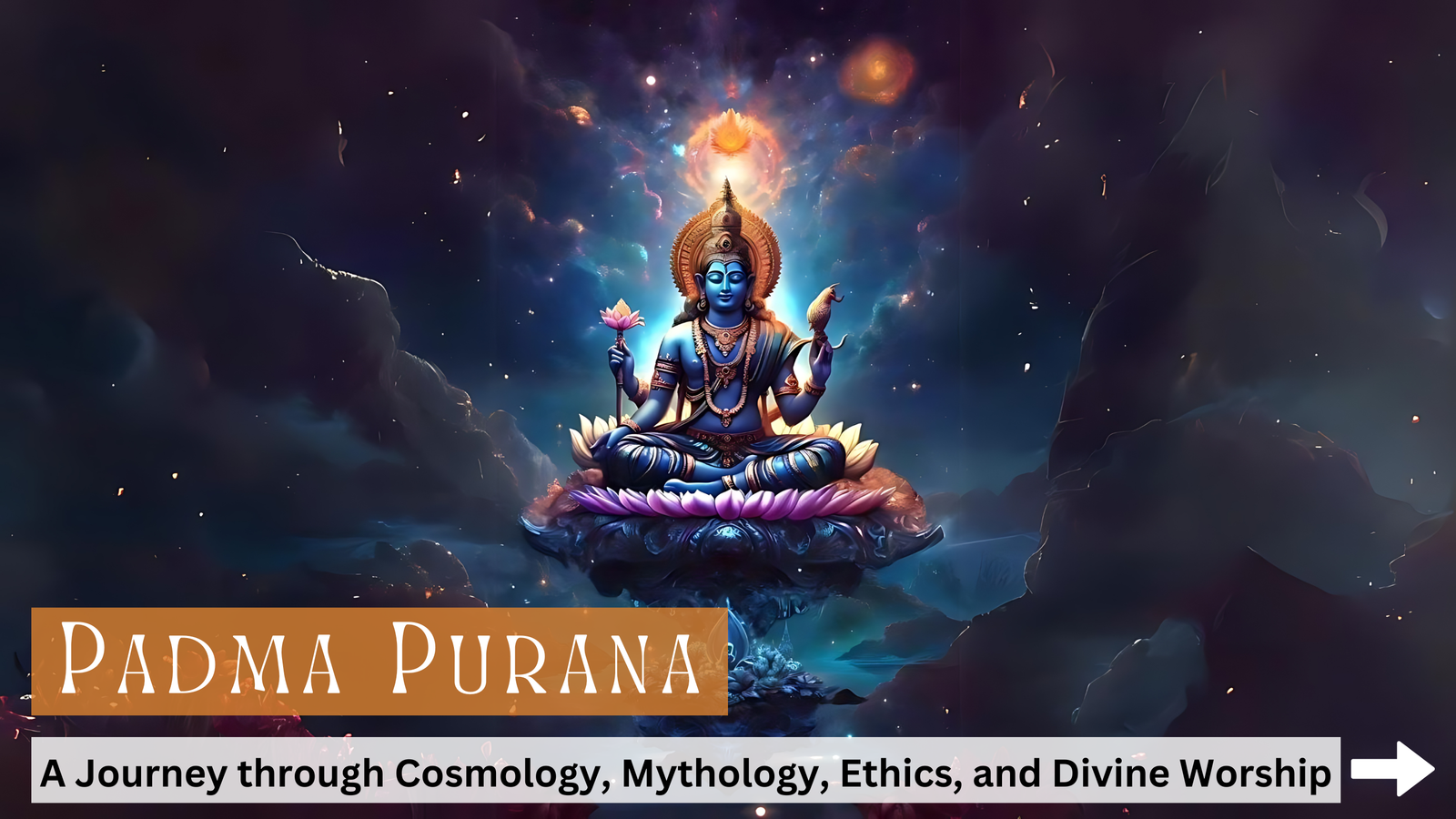Puranas
1. Brahmanda Purana: Ancient Wisdom for Modern Life
Origin and Authorship
- Name: Brahmanda Purana
- Attributed to: Sage Vyasa
- Period: 4th to 6th centuries CE
- Language: Sanskrit
- Structure: About 12,000 verses, one of the eighteen Mahapuranas
Key Content
- Creation and Cosmology: Universe’s creation and cycles
- Mythology and Legends: Stories of gods, goddesses, and heroes
- Genealogies: Lists of gods, sages, and kings
- Geography: Sacred rivers, mountains, and cities
- Philosophy: Dharma, karma, and moksha
Modern-Day Relevance
- Mental Health: Meditation practices and inspirational stories
- Ethical Guidance: Framework for ethical decision-making and responsible behaviour
- Environmental Sustainability: Respect for nature and sacred sites
- Social Harmony: Emphasis on compassion and community bonding
- Health and Well-being: Holistic health practices and Ayurvedic references
The Brahmanda Purana offers practical wisdom for modern challenges, including mental health, ethical living, environmental care, and social harmony.
2. Bhagavad Purana: Ancient Wisdom for Modern Solutions
Origin and Authorship
- Name: Bhagavad Purana (Srimad Bhagavatam)
- Attributed to: Sage Vyasa
- Period: 9th to 10th century CE
- Language: Sanskrit
- Structure: 12 books (cantos) with over 18,000 verses
Key Content
- Cosmology and Creation: Universe’s creation and time cycles
- Avatars of Vishnu: Stories of Vishnu’s ten avatars, including Rama and Krishna
- Life and Teachings of Krishna: Comprehensive narratives and divine play (Leela)
- Philosophy and Theology: Discussions on Bhakti (devotion), Jnana (knowledge), and Dharma (righteousness)
- Moral and Ethical Lessons: Guidance for virtuous living and spiritual liberation
Modern-Day Relevance
- Mental Health: Meditation and mindfulness practices to reduce stress
- Spiritual Growth: Path of Bhakti for inner peace and fulfilment
- Ethical Guidance: Dharma and karma for ethical decision-making
- Community and Relationships: Promotes compassion, empathy, and social harmony
- Health and Well-being: Integrates physical, mental, and spiritual health
- Environmental Consciousness: Advocates respect and protection for nature
The Bhagavad Purana offers timeless wisdom for addressing modern challenges, providing practical solutions for mental health, spiritual growth, ethical living, social harmony, and environmental consciousness.
3. Skanda Purana: Ancient Wisdom for Modern Challenges
Origin and Authorship
- Name: Skanda Purana
- Attributed to: Sage Vyasa
- Period: 4th to 6th centuries CE
- Language: Sanskrit
- Structure: One of the eighteen Mahapuranas, comprising about 81,100 verses.
Key Content
- Mythology: Skanda’s battles as Shiva and Parvati’s son.
- Creation and Cosmology: Universe’s creation and cosmic order.
- Religious Practices: Rituals, temple worship, and festivals.
- Genealogies: Lists of deities, sages, and dynasties.
- Ethical Teachings: Dharma, karma, and spiritual guidance.
Modern-Day Relevance
- Mental Health: Inspiring tales of Skanda offer motivation; promotes meditation for clarity and balance.
- Ethical Guidance: Provides moral principles for ethical living and understanding consequences.
- Environmental Awareness: Emphasis’s harmony with nature and sacred spaces.
- Health and Well-being: Offers traditional practices for physical and spiritual health.
The Skanda Purana offers timeless wisdom that addresses modern issues through its insights into mental health, ethical living, environmental respect, and overall well-being.
4. Garuda Purana: Ancient Wisdom for Modern Challenges
Origin and Authorship
- Name: Garuda Purana
- Attributed to: Sage Vyasa
- Period: 4th to 6th centuries CE
- Language: Sanskrit
- Structure: About 19,000 verses, part of the eighteen Mahapuranas
Key Content
- Mythology: Stories of Garuda, the divine eagle, and his role as Vishnu’s vehicle
- Cosmology: Universe creation and divine realms
- Rituals: Guidelines for religious rites, including funeral practices
- Ethics: Dharma (righteousness) and karma (action)
- Health: Ayurveda and medicinal plant knowledge
Modern-Day Relevance
- Mental Health: Encourages meditation and spiritual practices for peace and clarity
- Ethical Guidance: Framework for ethical decision-making and understanding karma
- Health: Ancient Ayurvedic practices for holistic well-being
- Environmental Awareness: Emphasises the sacredness of nature
The Garuda Purana offers valuable insights into mental health, ethics, health practices, and environmental respect, making it a relevant guide for modern life.
5. Kurma Purana: Ancient Wisdom for Today
Origin and Authorship
- Name: Kurma Purana
- Attributed to: Sage Vyasa
- Period: 4th to 6th centuries CE
- Language: Sanskrit
- Structure: About 17,000 verses, part of the eighteen Mahapuranas
Key Content
- Mythology: Story of Kurma, Vishnu’s tortoise avatar, and the ocean churning
- Creation and Cosmology: Universe creation and cosmic cycles
- Rituals: Guidelines for religious rites
- Genealogies: Lists of deities and sages
- Ethics: Dharma and karma teachings.
Modern-Day Relevance of the Kurma Purana
- Mental Health: Inspiring stories of Kurma’s resilience offer comfort and strength, while meditation practices promote inner peace.
- Ethical Guidance: Provides a framework for ethical decision-making and understanding the impact of actions.
- Environmental Awareness: Highlights the importance of preserving and respecting nature.
- Health and Well-being: Offers traditional guidelines for holistic physical and spiritual health.
The Kurma Purana offers timeless wisdom on mental health, ethical living, environmental respect, and holistic well-being for modern challenges.
6. Brahma Purana: Ancient Wisdom for Modern Challenges
Origin and Authorship
- Name: Brahma Purana
- Attributed to: Sage Vyasa
- Period: 4th to 6th centuries CE
- Language: Sanskrit
- Structure: About 245 chapters
Key Content
- Creation and Cosmology: Universe’s creation, time cycles
- Mythology and Legends: Stories of Krishna, Vishnu, Shiva
- Pilgrimage and Geography: Sacred places and their significance
- Rituals and Worship: Religious ceremonies and deity worship
- Moral and Ethical Teachings: Righteousness (dharma), action (karma), liberation (moksha)
- Hymns and Rhymes: Poetic prayers
Modern-Day Relevance
- Mental Health: Meditation and mindfulness to reduce stress
- Environmental Sustainability: Respect for nature and sustainable living
- Ethical Guidance: Dharma and karma for ethical decision-making
- Social Harmony: Lessons on empathy and community bonds
- Personal Growth: Path to moksha and spiritual enlightenment
- Health: Insights into holistic health and Ayurveda
- Economic Stability: Ethical wealth management and charity
The Brahma Purana offers timeless guidance for contemporary issues, providing practical solutions for stress, ethics, sustainability, and personal growth.
7. Agni Purana: Timeless Wisdom for Modern Challenges
Origin and Authorship
- Name: Agni Purana
- Attributed to: Sage Vyasa
- Period: 4th to 6th centuries CE
- Language: Sanskrit
- Structure: One of the eighteen Mahapuranas, with approximately 15,000 verses.
Key Content
- Mythology: Centers on Agni, the fire god, and his role in cosmic and ritualistic contexts.
- Creation and Cosmology: Describes the universe’s creation and divine order.
- Religious Practices: Provides guidelines for rituals, worship, and ceremonies, especially related to fire.
- Genealogies: Lists of deities, sages, and ancient dynasties.
- Ethical Teachings: Insights into dharma (righteousness), karma (action), and spiritual wisdom.
Modern-Day Relevance
- Mental Health: Agni’s divine role provides strength; promotes meditation and fire rituals for inner peace.
- Ethical Guidance: Offers moral principles for ethical decisions and understanding consequences.
- Environmental Awareness: Stresses respect for natural elements and their importance.
- Health and Well-being: Includes rituals for maintaining physical and spiritual health.
The Agni Purana offers valuable insights into mental health, ethical living, environmental respect, and holistic well-being, addressing modern challenges through ancient wisdom.
8. Vamana Purana: Ancient Insights for Modern Solutions
Origin and Authorship
- Name: Vamana Purana
- Attributed to: Sage Vyasa
- Period: 4th to 6th centuries CE
- Language: Sanskrit
- Structure: Part of the eighteen Mahapuranas, containing about 10,000 verses.
Key Content
- Mythology: Vamana, Vishnu’s dwarf avatar, and his victory over the demon king Bali.
- Creation and Cosmology: Origins of the universe and divine order.
- Religious Practices: Rituals, worship, and temple ceremonies.
- Genealogies: Lists of gods, sages, and historical figures.
- Ethical Teachings: Insights into dharma, karma, and spiritual wisdom.
Modern-Day Relevance
- Mental Health: Vamana’s stories offer comfort and inspiration; encourage meditation for inner peace.
- Ethical Guidance: Provides principles for ethical choices and understanding consequences.
- Environmental Awareness: Emphasises respect and balance with nature.
- Health and Well-being: Offers traditional practices for physical and spiritual wellness.
The Vamana Purana delivers ancient wisdom relevant to contemporary issues, offering guidance on mental health, ethical living, environmental respect, and overall well-being.
9. Bhavishya Purana: Ancient Insights for Modern Challenges
Origin and Authorship
- Name: Bhavishya Purana
- Attributed to: Sage Vyasa
- Period: 4th to 6th centuries CE
- Language: Sanskrit
- Structure: One of the eighteen Mahapuranas, comprising about 14,000 verses.
Key Content
- Prophecies: Contains future predictions and descriptions of future events.
- Mythology: Includes stories of gods, sages, and historical figures.
- Creation and Cosmology: Discusses the universe’s origins and cosmic order.
- Religious Practices: Guidelines for rituals, worship, and ceremonies.
- Ethical Teachings: Offers insights into dharma (righteousness), karma (action), and moral principles.
Modern-Day Relevance
- Mental Health: Offers hope through prophecies; encourages meditation for clarity and resilience.
- Ethical Guidance: Provides a moral framework for ethical living and understanding consequences.
- Environmental Awareness: Emphasizes respect and protection of the environment.
- Health and Well-being: Includes rituals and practices for physical and spiritual health.
The Bhavisya Purana offers valuable guidance for contemporary issues through its prophecies, ethical teachings, and practices that support mental health, ethical living, environmental respect, and holistic well-being.
10. Shiva Purana: Ancient Wisdom for Modern Challenges
Origin and Authorship
- Name: Shiva Purana
- Attributed to: Sage Vyasa
- Period: 4th to 6th centuries CE
- Language: Sanskrit
- Structure: One of the eighteen Mahapuranas, with about 24,000 verses.
Key Content
- Mythology: Centers on Lord Shiva, his divine deeds, and his role in the cosmic order.
- Creation and Cosmology: Describes the universe’s origins and the nature of divine forces.
- Religious Practices: Provides detailed guidelines for rituals, worship, and temple ceremonies dedicated to Shiva.
- Genealogies: Lists deities, sages, and historical figures associated with Shiva.
- Ethical Teachings: Offers insights into dharma (righteousness), karma (action), and spiritual principles.
Modern-Day Relevance
- Mental Health: Shiva’s resilience offers strength; promotes meditation for peace and balance.
- Ethical Guidance: Provides a moral framework for ethical living and understanding actions.
- Environmental Awareness: Emphasizes respect and harmony with nature.
- Health and Well-being: Includes rituals for physical and spiritual health.
The Shiva Purana provides timeless guidance on mental health, ethical living, environmental respect, and holistic well-being, offering valuable insights and practices for addressing modern-day challenges.
11. Narada Purana: Ancient Wisdom for Modern Issues
Origin and Authorship
- Name: Narada Purana
- Attributed to: Sage Narada
- Period: 4th to 6th centuries CE
- Language: Sanskrit
- Structure: One of the eighteen Mahapuranas, comprising about 25,000 verses.
Key Content
- Mythology: Focuses on Narada Muni, his travels, and his interactions with various deities and sages.
- Creation and Cosmology: Discusses the universe’s creation and divine order.
- Religious Practices: Provides guidelines for rituals, worship, and festivals.
- Genealogies: Lists of gods, sages, and historical figures.
- Ethical Teachings: Offers insights into dharma (righteousness), karma (action), and devotion.
Modern-Day Relevance
- Mental Health: Narada’s wisdom offers comfort and motivation; encourages meditation for clarity.
- Ethical Guidance: Provides moral principles for ethical living and understanding actions.
- Environmental Awareness: Emphasises respecting and harmonising with nature.
- Health and Well-being: Features rituals and practices for physical and spiritual health.
The Narada Purana offers timeless guidance for contemporary issues, providing insights into mental health, ethical living, environmental respect, and holistic well-being through its rich narratives and teachings.
12. Varaha Purana: Timeless Wisdom for Today’s Challenges
Origin and Authorship
- Name: Varaha Purana
- Attributed to: Sage Vyasa
- Period: 4th to 6th centuries CE
- Language: Sanskrit
- Structure: One of the eighteen Mahapuranas, consisting of about 24,000 verses.
Key Content
- Mythology: Varaha, Vishnu’s boar avatar, rescues the Earth from Hiranyaksha.
- Creation and Cosmology: Explains the universe’s creation and divine order.
- Religious Practices: Provides guidelines for rituals, worship, and ceremonies.
- Genealogies: Lists of deities, sages, and dynasties.
- Ethical Teachings: Insights into dharma, karma, and spiritual principles.
Modern-Day Relevance
- Mental Health: Varaha’s heroism provides motivation; encourages meditation for peace and balance.
- Ethical Guidance: Offers moral principles for ethical choices and understanding actions.
- Environmental Awareness: Emphasizes the need to protect and respect the Earth.
- Health and Well-being: Provides rituals for physical and spiritual health.
The Varaha Purana provides valuable insights for modern life, offering guidance on mental health, ethical living, environmental respect, and holistic well-being.
13. Markandeya Purana: Ancient Wisdom for Contemporary Life
Origin and Authorship
- Name: Markandeya Purana
- Attributed to: Sage Markandeya
- Period: 4th to 6th centuries CE
- Language: Sanskrit
- Structure: One of the eighteen Mahapuranas, comprising about 9,000 verses.
Key Content
- Mythology: Centers on Sage Markandeya and his divine visions, including the cosmic and mythological tales.
- Creation and Cosmology: Details the origins of the universe and the divine order.
- Religious Practices: Instructions for rituals, worship, and ceremonies.
- Genealogies: Lists of gods, sages, and dynasties.
- Ethical Teachings: Insights into dharma (righteousness), karma (action), and spiritual wisdom.
Modern-Day Relevance
- Mental Health: Markandeya’s resilience and divine visions provide hope; promotes meditation for clarity.
- Ethical Guidance: Offers moral principles for ethical living and understanding consequences.
- Environmental Awareness: Stresses respect for nature and its divine connection.
- Health and Well-being: Includes rituals and practices for physical and spiritual health.
The Markandeya Purana provides valuable teachings for modern challenges, offering guidance on mental health, ethical living, environmental respect, and holistic well-being through its ancient wisdom.
14. Matsya Purana: Ancient Wisdom for Modern Life
Origin and Authorship
- Name: Matsya Purana
- Attributed to: Sage Vyasa
- Period: 4th to 6th centuries CE
- Language: Sanskrit
- Structure: About 14,000 verses, part of the eighteen Mahapuranas
Key Content
- Mythology: Story of Matsya, Vishnu’s fish avatar, and the great deluge
- Creation and Cosmology: Universe creation and divine realms
- Religious Practices: Rituals and temple worship guidelines
- Genealogies: Lists of gods, sages, and dynasties
- Ethics: Dharma and karma teachings
Modern-Day Relevance
- Mental Health: Inspirational stories and spiritual practices for peace
- Ethical Guidance: Framework for making ethical decisions
- Environmental Awareness: Emphasises nature preservation
- Health and Well-being: Traditional practices for physical and spiritual health
- The Matsya Purana provides practical wisdom for modern issues, including mental health, ethical living, environmental respect, and overall well-being
The Matsya Purana provides practical wisdom for modern issues, including mental health, ethical living, environmental respect, and overall well-being.
15. Kurma Purana: Ancient Wisdom for Today
Origin and Authorship
- Name: Kurma Purana
- Attributed to: Sage Vyasa
- Period: 4th to 6th centuries CE
- Language: Sanskrit
- Structure: About 17,000 verses, part of the eighteen Mahapuranas
Key Content
- Mythology: Story of Kurma, Vishnu’s tortoise avatar, and the ocean churning
- Creation and Cosmology: Universe creation and cosmic cycles
- Rituals: Guidelines for religious rites
- Genealogies: Lists of deities and sages
- Ethics: Dharma and karma teachings.
Modern-Day Relevance of the Kurma Purana
- Mental Health: Inspiring stories of Kurma’s resilience offer comfort and strength, while meditation practices promote inner peace.
- Ethical Guidance: Provides a framework for ethical decision-making and understanding the impact of actions.
- Environmental Awareness: Highlights the importance of preserving and respecting nature.
- Health and Well-being: Offers traditional guidelines for holistic physical and spiritual health.
The Kurma Purana offers timeless wisdom on mental health, ethical living, environmental respect, and holistic well-being for modern challenges.
16. Linga Purana: Ancient Insights for Contemporary Life
Origin and Authorship
- Name: Linga Purana
- Attributed to: Sage Vyasa
- Period: 4th to 6th centuries CE
- Language: Sanskrit
- Structure: One of the eighteen Mahapuranas, comprising about 11,000 verses.
Key Content
- Mythology: Focuses on Linga, the symbol of Shiva, and the origins of this sacred form.
- Creation and Cosmology: Details the universe’s creation and the nature of divine forces.
- Religious Practices: Instructions for worship, rituals, and temple ceremonies dedicated to Shiva.
- Genealogies: Lists of deities, sages, and ancient dynasties.
- Ethical Teachings: Insights into dharma (righteousness), karma (action), and spiritual wisdom.
Modern-Day Relevance
- Mental Health: Inspiring stories of Shiva offer comfort and strength; promote meditation for inner peace.
- Ethical Guidance: Provides a moral framework for ethical living and understanding actions.
- Environmental Awareness: Stresses the importance of respecting and preserving nature.
- Health and Well-being: Includes rituals and practices for physical and spiritual health.
The Linga Purana provides valuable guidance for modern life through its teachings on mental health, ethical living, environmental respect, and holistic well-being.
17. Brahma Vaivarta Purana: Ancient Wisdom for Contemporary Life
Origin and Authorship
- Name: Brahma Vaivarta Purana
- Attributed to: Sage Vyasa
- Period: 4th to 6th centuries CE
- Language: Sanskrit
- Structure: One of the eighteen Mahapuranas, consisting of approximately 18,000 verses.
Key Content
- Mythology: Focuses on the divine manifestations of Brahma, Vishnu, and Shiva, with a special emphasis on the life of Radha and Krishna.
- Creation and Cosmology: Describes the universe’s creation and the divine roles of the deities.
- Religious Practices: Guidelines for worship, rituals, and devotional practices.
- Genealogies: Lists of gods, sages, and dynasties.
- Ethical Teachings: Insights into dharma (righteousness), karma (action), and devotion.
Modern-Day Relevance
- Mental Health: Stories of Krishna and Radha offer comfort; promote meditation for inner peace.
- Ethical Guidance: Provides moral principles for ethical choices and understanding consequences.
- Environmental Awareness: Emphasises respect and preservation of nature.
- Health and Well-being: Includes rituals and devotional practices for physical and spiritual health.
- The Brahma Vaivarta Purana offers timeless insights into mental health, ethical living, environmental respect, and holistic well-being, providing valuable guidance for modern challenges.
The Brahma Vaivarta Purana offers timeless insights into mental health, ethical living, environmental respect, and holistic well-being, providing valuable guidance for modern challenges.
18. Padma Purana: Rich tapestry of stories, teachings, and practical advice
Origin and Authorship
- Name: Padma Purana
- Attributed to: Sage Vyasa
- Period: 4th and 15th centuries CE
- Language: Sanskrit
- Structure: About 697 chapters and 55,000 verses.
Key Content
- Creation and Cosmology: Concept of yugas (ages), time cycles
- Mythology and Legends: Stories of Vishnu, Shiva, and Devi
- Pilgrimage and Geography: Sanctity of nature, promoting environmental conservation
- Rituals and Worship: Religious ceremonies and deity worship
- Moral and Ethical Teachings: Truth, righteousness, devotion, and compassion.
- Hymns and Rhymes: Poetic prayers
Modern-Day Relevance
- Spiritual Solace: Promote mental well-being through devotion and faith.
- Meditative Practices: Alleviate anxiety and improve mental focus.
- Ecological Teachings: Modern environmental conservation efforts.
- Sacred Geography: Encouraging respect and protection of natural resources.
- Moral Stories: Importance of living a righteous and compassionate life.
- Community Harmony: Solutions to societal conflicts and fostering community well-being.
- Ayurvedic Wisdom: Healing practices and herbal remedies that can complement modern healthcare.
- Holistic Health: Balanced lifestyle that integrates physical, mental, and spiritual health.
Padma Purana emphasizes devotion, ethics, environmental stewardship, and holistic health; it offers valuable insights for finding balance and harmony in today’s world.

